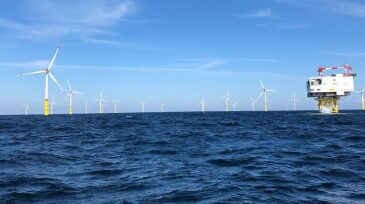Energy transition
The Texas-based geothermal company said it set a new temperature record and achieved strong drilling performance in its first enhanced geothermal pilot.
A new Eni/Petronas venture is targeting 500,000 BOE/D in output from combined upstream portfolios across Malaysia and Indonesia.
2025 has seen an 81% year-on-year rise in the number of small modular reactor designs to have secured at least one source of funding or a funding commitment.
-
Oil and gas are not the only things in the ground that can power our lives. Heat in the form of geothermal energy is rapidly taking its place alongside other sources of renewable energy, buoyed by the lessons learned from decades of drilling for oil.
-
Around $90 billion, or 40% of the revenue from the top 50 players in the global service market, could potentially be replaced by energy transition projects, such as clean energy infrastructure and renewable energy production development services.
-
The goal of the platform is to connect technologies to operators, developers, and end users in the UK oil, gas, and renewable energy sectors and be the catalyst for rapid technology deployment.
-
Hydrogen from fossil fuels is not only an easier way to pivot to clean energy than going full-on renewables; it could also establish new businesses and generate tremendous revenue by leveraging the oil and gas industry’s existing knowledge and expertise.
-
IHS Markit says the industry’s “striking pace of growth” and a dynamic commercial environment are fueling the movement to zero-carbon sources.
-
Technology innovation, job creation, inclusive and equitable recoveries, and sustainable electricity headline discussions at high-level summit.
-
Exploration is widely perceived as discretionary, even unwarranted. A report from Wood Mackenzie, however, presented a different scene. Only about half the supply needed to reach 2040 is guaranteed from fields already on stream, it said. The rest requires new capital investment and is up for grabs.
-
Approaches to carbon abatement using petroleum are discussed that have a strong chance to succeed in fulfilling technological and economic goals in reducing carbon.
-
World energy is at a “pivotal moment,” says BP CEO in annual statistical review, which reveals contrasts, challenges in energy consumption, production, and emissions.
-
COVID-19 will fundamentally affect the world’s energy systems and the pace and direction of global transition. The WEC identified a three-stage, respond-rebuild-recreate model being adopted by energy companies in response to the pandemic.












